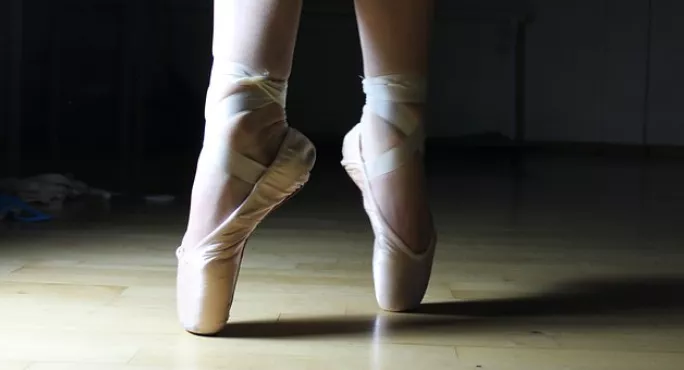- Home
- My daughter just wants to dance. So what’s stopping her?
My daughter just wants to dance. So what’s stopping her?

Not too long ago I attended a parents’ meeting about all the different progression pathways that are available through the education system for young people aged 13 and over - the different subject choices, colleges and vocational courses.
But there was something missing. At the end, I approached a member of staff and explained that my daughter wants to dance.
“Dance is a problem,” came the reply. “It’s been taken out.”
This encapsulated the root of a challenge I encountered persistently during my 21 years as CEO and director of Imaginate, the national organisation supporting theatre and dance for children in Scotland. Culturally, the expressive arts are still viewed as an add-on - sometimes a rather extravagant add-on - instead of an integral part of our humanity. And that’s why it’s still far too easy to take them away.
More than ‘nice to have’: Young people tell us how much they value the arts, so why aren’t we listening?
Life after school: Arts education makes pupils more employable
Plan B: Why we should look beyond schools for arts education
In some areas it is possible to study National 5 dance, but not everywhere. Our nearest college used to offer dance, but no longer.
Put the arts at the heart of education
Across Scotland and the UK, as austerity-hit local authorities try to balance their books, we’re seeing how music, dance and other subjects deemed non-essential are the first to be kicked to the sidelines.
Every child has multiple intelligences, and creative movement is an important one. Certainly as important as any other, in my view. Dance is where my daughter’s passion lies, where she finds motivation to excel and her own freedom of expression.
As she enters the “exam phase”, I reflect that my earliest memory of her schooling is of adults urging her to be still and stop moving. And now, at a time when we should be offering our young people as much diversity and choice as possible to ensure that they remain engaged with education, it feels as though the message is: “stop dancing”.
This is all the more galling because I remember the buzz around putting creativity and the arts at the heart of learning when Curriculum for Excellence was introduced almost a decade ago.
At that time theatre and creative experiences for children had exploded, too. From my first Imaginate festival in 1996, where there was a creche for babies so people could get on with the arts, we’d reached a point where we had a rich programme for every age, from zero upwards.
I want to acknowledge the progress that’s been made. I know individual primary teachers who understand how to leverage the expressive arts as tools for developing a range of highly valuable skills and use them to deepen learning across the curriculum. This is particularly evident in early primary, where there is a groundswell of support for a more fluid, play-based approach.
I know of some truly progressive partnerships between artists and schools, too; for example, Imaginate’s three-year pilot project delivering immersive theatre in schools to help boost skills in reading, writing and listening.
I also know of many incredible community projects, which, through the arts, are empowering children and young people to overcome adverse experiences, grow in confidence and self-esteem and develop vital skills.
I would like to have faith that these pockets of excellence will bubble over into the mainstream, cementing partnerships between schools, nurseries, communities and artists and bringing about a culture shift so that the arts and creativity truly are at the heart of all we do.
Unfortunately, I fear the opposite will happen. And that’s why, as part of Children in Scotland’s 25 Calls campaign, I am supporting Starcatchers’ call to ensure that every child can participate in high-quality, innovative arts experiences from the earliest age.
Culturally, it feels as though we are becoming more obsessed with judging success according to a narrow set of government measures and benchmarks, which are entirely at odds with the fluidity and creative freedom that the expressive arts offer.
This is despite knowing that the arts offer opportunities for developing some of the most essential qualities and skills for the 21st century: creativity, critical thinking, problem-solving, flexibility, judgement and emotional intelligence.
Until the underlying system, which develops the policies and distributes resources, recognises this, the arts will always be vulnerable, out on the margins.
So, for now, I can only say this to my daughter and to every other baby, child and young person: keep on dancing.
Tony Reekie was director of the Edinburgh International Children’s Festival from 1994-2014. His roles now include creative producer for Edinburgh-based Lyra, which creates artworks for and by children
Mr Reekie is supporting Starcatchers’ “call”, as part of Children in Scotland’s 25 Calls campaign. This is a version of a piece originally published on Children in Scotland’s website.
Keep reading for just £1 per month
You've reached your limit of free articles this month. Subscribe for £1 per month for three months and get:
- Unlimited access to all Tes magazine content
- Exclusive subscriber-only stories
- Award-winning email newsletters